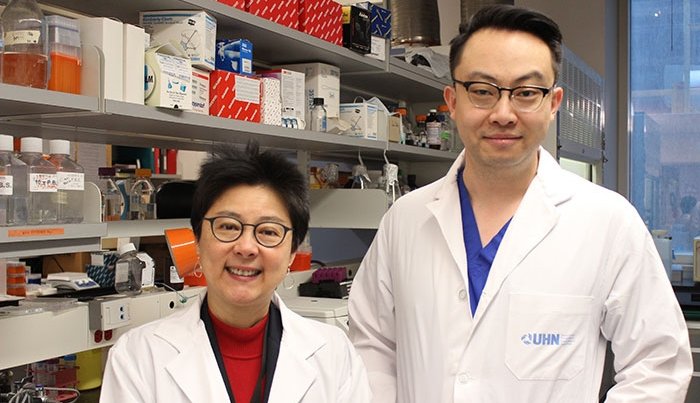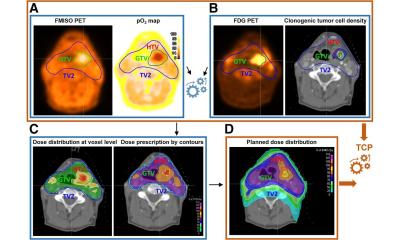
Photo: UHN
News • Radiotherapy side-effects
Skin fibrosis: new treatment for cancer patients
A clinical-scientific team specializing in head-and-neck cancer has identified a way to manipulate metabolism to potentially curb skin fibrosis – a common side effect of radiotherapy affecting quality of life of cancer survivors.
The study findings from the laboratory of principal investigator Dr. Fei-Fei Liu, Chief, Radiation Oncology, Princess Margaret Cancer Centre, University Health Network, are published online in Nature Metabolism. Dr. Liu is also Professor and Chair, Department of Radiation Oncology, University of Toronto and holds the Dr. Mariano Elia Chair in Head and Neck Oncology.
First author Dr. Xiao Zhao, a resident in head-and-neck surgery who completed PhD studies with Dr. Liu, says the research team wanted to find a way to reduce radiation-induced fibrosis, a condition where normal tissue progressively thickens causing pain and dysfunction. The underlying problem is the excess buildup of the extracellular matrix, a supporting structure for all tissues. There is currently no effective treatment to reduce this accumulation.
Recommended article

News • Radiation protection
Using skin creams during radiation therapy: Is it safe?
Nearly two-thirds of all cancer patients in the United States will undergo radiation therapy as part of their treatment, and as many as 90 percent of those patients will experience radiation dermatitis – a rash or burn on the skin. Topical treatments commonly such as silver sulfadiazine cream contain heavy metals. Therefore, patients have historically been advised to avoid using these…
Our question was: ‘Can we manipulate metabolism to reduce fibrosis?’
Xiao Zhao
The findings from human tissues with radiation-induced fibrosis and pre-clinical lab experiments steered the team to zero in on metabolic processes that trigger and perpetuate fibrosis. Dr. Zhao says: “We were surprised to see that metabolic abnormalities were predominant and consistently found in patients with skin fibrosis, even years after their original radiotherapy. Our question was: ‘Can we manipulate metabolism to reduce fibrosis?’”
The team studied how regulating metabolism can shift cell behaviour and alter the buildup and degradation of the extracellular matrix. Through uncovering this metabolic model of extracellular matrix regulation, the team also identified several metabolic drug compounds and potential cell therapy techniques, which were successfully tested in pre-clinical models of fibrosis. These therapeutic strategies centred on metabolism will be carried to the next stage of ongoing research. “We’re highlighting fibrosis from this new perspective, thereby opening the door to metabolic regulation as a way to treat this side effect of radiation,” says Dr. Zhao.
Source: University Health Network
08.01.2019





